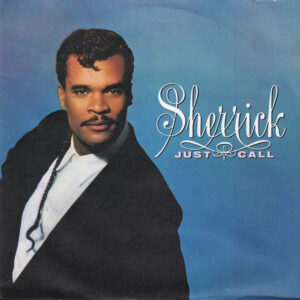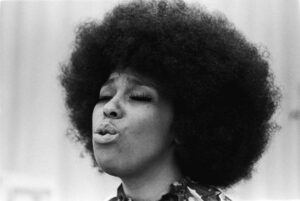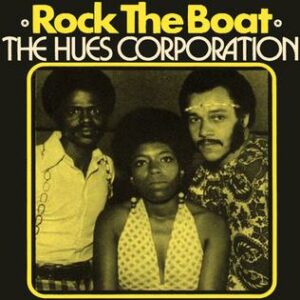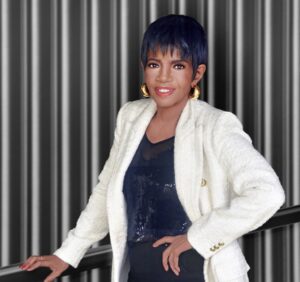 Ah, yes, to be young. Listening to Jesse Boykins III self-penned and self-produced debut EP, Dopamine, takes me back to those sweet days of youth. Days when my elders didn’t take me seriously, dismissed me and told me to go sit in the corner until my thirtieth birthday (apparently the trifecta of wisdom, judgment and reasoning were expected to trigger the following day). Back to days when love had an urgent, obsessive quality that seems slightly akin to a treatable mental illness to me now. Days when I thought I knew it all, could stroke better than any muthafella, and felt like I was the best darn catch in the whole wide world, or at least on my block. "Oh, you don’t know? You betta ask somebody, playa." Or, so I thought. Of course these highs were followed by bi-polar lows of doubt, debilitating insecurities and nagging questions of "who am I, really?" and "what am I suppose to be doing with my life?" Yes, to be a young man in my twenties. I’d sooner commit suicide than relive them, but I look back often with misty-eyed fondness and a survivalist’s relief. With Dopamine, Boykins’ beautifully captures the arrogance and melancholy of young adulthood with a sensitivity and maturity that belies his tender years.
Ah, yes, to be young. Listening to Jesse Boykins III self-penned and self-produced debut EP, Dopamine, takes me back to those sweet days of youth. Days when my elders didn’t take me seriously, dismissed me and told me to go sit in the corner until my thirtieth birthday (apparently the trifecta of wisdom, judgment and reasoning were expected to trigger the following day). Back to days when love had an urgent, obsessive quality that seems slightly akin to a treatable mental illness to me now. Days when I thought I knew it all, could stroke better than any muthafella, and felt like I was the best darn catch in the whole wide world, or at least on my block. "Oh, you don’t know? You betta ask somebody, playa." Or, so I thought. Of course these highs were followed by bi-polar lows of doubt, debilitating insecurities and nagging questions of "who am I, really?" and "what am I suppose to be doing with my life?" Yes, to be a young man in my twenties. I’d sooner commit suicide than relive them, but I look back often with misty-eyed fondness and a survivalist’s relief. With Dopamine, Boykins’ beautifully captures the arrogance and melancholy of young adulthood with a sensitivity and maturity that belies his tender years.
Short, slender, black and corn-rolled, the 23 years old Boykins looks every bit the young hip hop thug, one ripe for presumptive stereotyping. As his elder, I was quick to take the bait. "Not another Lloyd, Trey Songz or any number of thug lovers in the tradition of Jaheim minus the vocal chops," I thought as I observed Boykins’ marketing rollout. But Boykins plays on this underestimation to his advantage by hitting you with his best song early, the single, "Tabloids." A blend of African percussion, spacey synths, subtly punchy horns and an airy falsetto, "Tabloids" inarguably declares Boykins a grown man playing grown folks music. Predicting your assumptions, right from the intro Jesse even lightly chides you for playing him short right before unrolling "Tabloids." By the time he gets done, you are more than aware that this is no hook and chorus kid on a fame kick. Jesse’s music has very little relationship to what is being played by his peers on urban radio, which proves both a blessing and a curse. Dopamine offers a mature take on man-child days and a submersion into the interiors of young love.
Since Boykins is doing his best to avoid the third rail of cookie-cutter artistry, he’s taken to looking on the indie side of things for inspiration. Reportedly a kind of protégé of Bilal, Jesse plays with poetically abstract language like his elder. Also like Bilal, Jesse is never less than emotionally present on this eight-song set (really six tracks, but the intro and outro do make a contribution to the whole). Boykins does, however, lack the elasticity of his mentor’s vocal instrument. On the rare occasion Boykins’ displays his vocal range; Jesse takes a page from Tank by delivering a voice drenched in earnestness and despair. It’s a good look on Jesse that rings sincere, and on the forthcoming album (to be released in August) I hope to hear him sing more in his upper register without always resorting to his falsetto. It is, after all, Jesse’s emotional honesty that keeps astute listeners on board for this intimate voyage.
You’d have thought after hearing elements of Bilal and Tank in Jesse’s work, I would’ve learned my lesson, but I’m bullheaded. After listening to "Tabloids," instead of admitting my initial mistake, I did what elders do and continued presuming, dismissing the youngster as just another Dwele. This assertion wasn’t entirely without foundation. Like Dwele, there is a muted moodiness, sing-talk delivery and more than a nod to jazz meets electronica atmospherics in both composition and vocal arrangement. But the fresh face Jesse is as hungry and organic, as Dwele is increasingly stagnate and manufactured; Dwele’s the aging Dorian Gray portrait in Jesse’s closet.
Once I stopped being an ageist prick, I noticed that Jesse is also a rather brave songwriter. His songs are constructed to express the chaotic emotions of love and early manhood, rendered mostly as either an internal conversation with himself or as a testimony to listeners. What his leads don’t tell, devices such as word repetition, harmonic reprises, human and electronic sound effects, and random interpolations of young women’s voices -including Jade Foster-celebrating Jesse in poetry as a lover and a man expresses all the crazed, obsessive confusion of a young life in love, told from the inside out. In this respect, Dopamine has a definite relationship with Marvin Gaye’s I Want You and Maxwell’s Embrya, both boudoir suites about the interiors of male love. Where these masterpieces worked best was in their ability to still tell accessible stories and paint clearer pictures for listeners, allowing their fans to experience the emotional catharsis with the artist. While he is musically prodigious and courageous in his emotional displays, Jesse is still learning to master how to tell his story while also connecting with an audience.
I have no doubt he’ll get there. But I do wonder whether the current market will give this talented young man that opportunity. Boykins has all the tools: voice, honesty and innate musicality, but on this EP, he doesn’t demonstrate that he can write a hit or a memorable tune. Elegant, vulnerable, but decidedly non-traditional songs like "Sea," "Sobriety," and "Baby I Don’t Know" don’t make for many singles. They aren’t catchy nor is there enough visual storytelling to catch the lazy listener’s attention. "Tabloids" comes the closest to having minor hit potential, and though the spare ballad, "Think" is Dopamine’s most complete tune, it isn’t a hit. Now that iTunes has us back to playing a singles game, Boykins will need a follow-up single to "Tabloids" if he’s going to capture that strong fan base he’ll need for that necessary elbow room to develop his potential. However, boastful and preternaturally mature, twenty-three is still twenty-three, and artistic maturity-in most instances-still takes time to foster. Hopefully, you readers will be better than I initially was and look past the stereotypical image, listen to these artistic experimentations, and give this potential soul star that chance his talent so clearly deserves.–Highly recommended
By L. Michael Gipson









